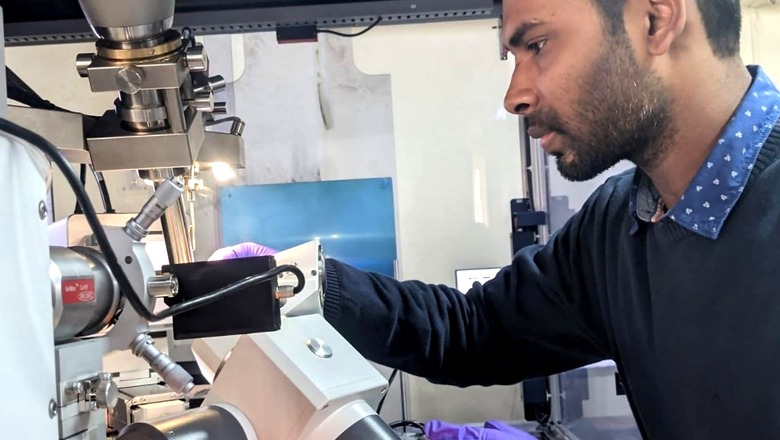
views
Researchers at the Indian Institute of Technology (IIT) Roorkee have discovered a 3D structure of bacteria that can aid the faster breakdown of plastic. The team identified all the bacterial enzymes that would help in the faster degradation of plastics, which are considered non-biodegradable, the institute said.
“Toxic phthalates are detrimental to the environment. These results provide insights into a pollutant-degrading enzyme. The results facilitate the engineering of this enzyme for bioremediation and biocatalytic applications,” said Prof Ajit K Chaturvedi, Director IIT Roorkee. Phthalate is a substance that hinders the endocrine system in living beings and is a potential carcinogen, found in plastics. It is degraded by a variety of bacteria.
Also read| IIT Madras Establish ‘AquaMAP’ Centre to Solve India’s Water Crisis
“The global plastic pollution has become the most pressing environmental issue. And recent studies on enzymes degrading polyethylene terephthalate type of plastics into terephthalate (TPA) show some potential in tackling this. Also, research from the last decade has discovered terephthalate dioxygenase (TPDO), as being responsible for initiating the enzymatic degradation of TPA in a few Gram-negative and Gram-positive bacteria. Therefore, building on this, the team members have determined the crystal structure of TPDO from Comamonas testosteroni KF1 and revealed that this enzyme can help degrade non-biodegradables,” Prof Pravindra Kumar, Department of Biosciences and Bioengineering at IIT Roorkee.
Read| IIT Hyderabad to Set up Suzuki Innovation Centre to Create Innovations for India, Japan
The research was spearheaded by Prof Pravindra Kumar with five associates at the Department of Biosciences and Bioengineering at IIT Roorkee. Jai Krishna Mahto is the lead author of this work. Other Scientists, Neetu, Monica Sharma, Bhairavnath Waghmode, Monica Dubey, Prof B P Vellanki, Prof Debabrata Sircar, Prof A K Sharma, and Prof Shailly Tomar were part of the team who contributed immensely to this work. The study on phthalate dioxygenase is published in “Journal of Biological Chemistry”, while on terephthalate dioxygenase will be published in the February edition of “Journal of Bacteriology”.
Read all the Latest Education News here


















Comments
0 comment